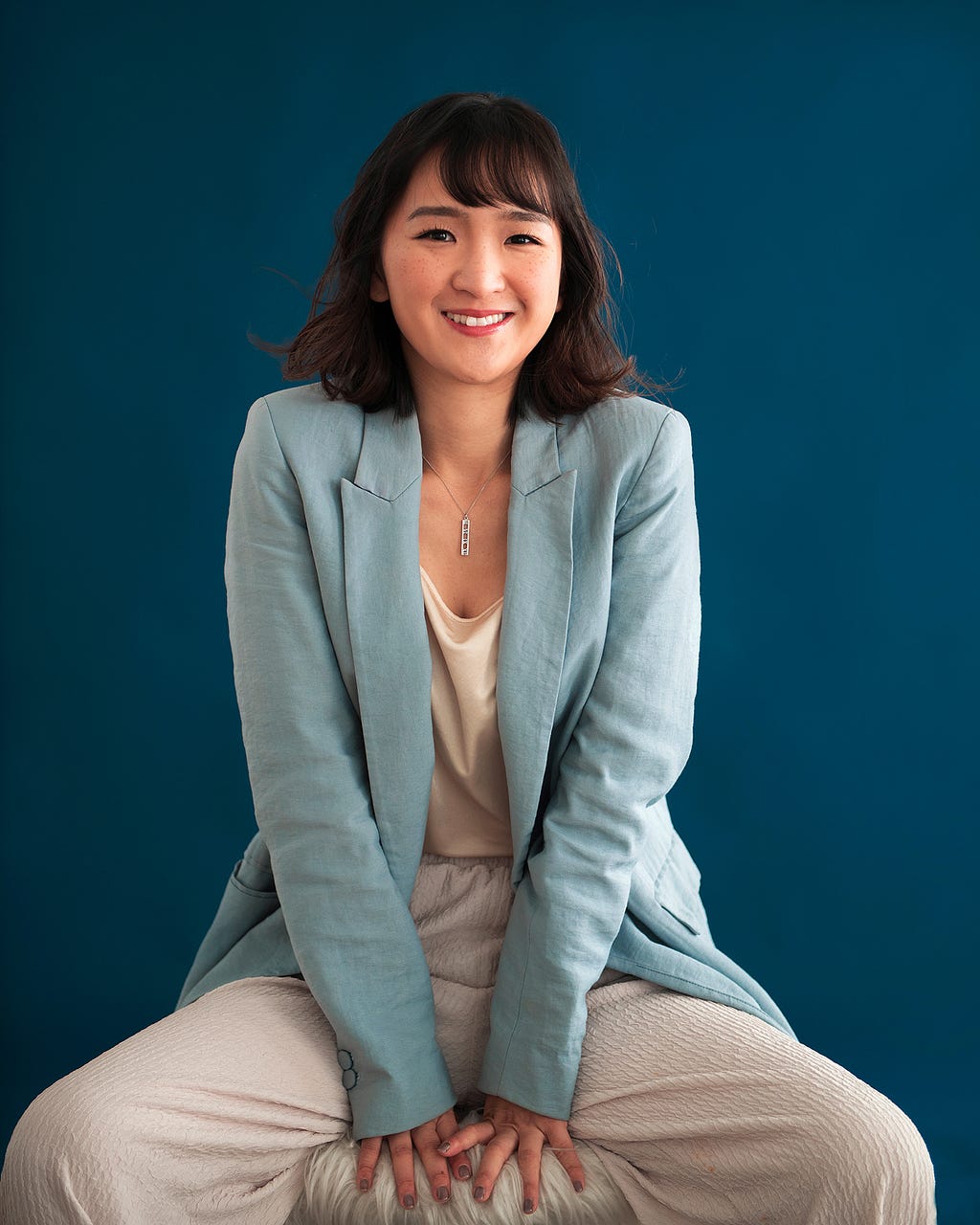Filmmaker Kay Niuyue Zhang: “Filmmaking is about evoking the collective unconscious memories and emotions”

I value the viewers more than anything else. For me, filmmaking is about evoking the collective unconscious, memories and emotions, a concept created by Carl Jung, something that we share as the human species. I do not seek to transcend boundaries of avant garde narrative styles or visual styles, but I seek to share emotional experiences with my audiences, whether it is love or hate, acceptance or betrayal, trust or fear.
Kay Niuyue Zhang is a director and producer based in Los Angeles. After graduating from Duke University with a Bachelor’s degree in International Comparative Studies, and working as a bilingual Production Coordinator for a year, she decided to pursue her long standing love for films and filmmaking and attended USC School of Cinematic Arts for an MFA program in Film Production. Kay produced several short films and features that were screened at Oscar qualifying film festivals internationally such as Flickers’ Rhode Island IFF, St. Louis IFF, USA Film Festival, and Beijing IFF, and won the 27th DGA Student Film Awards Best Women Filmmaker, Gold Medalist of the 47th Student Academy Awards, and Special Jury Prize at the BAFTA Student Film Awards.
Thank you so much for joining us in this interview series! Our readers would love to get to know you a bit better. Can you tell us a bit of the ‘backstory’ of how you grew up?
My name is Kay Niuyue Zhang, I am a bilingual director and producer. Born and bred in mainland China, grew up watching Disney, ABC and CBS, K-drama and Japanese cinema, educated in Duke university’s small-town Durham North Carolina, and now hustling in Los Angeles, I am a millennial global citizen who comfortably lives with diverse cultures and values.
Can you share a story with us about what brought you to this specific career path?
My internship in Nickelodeon Animation Studios brought me to Hollywood. I’ve always loved cinema and television since growing up, but my time spent with Nickelodeon made me a firm believer that I could have a voice and shape the future in this industry. When I was working with the SpongeBob SquarePants production team, I felt a genuine connection with the LA artist community and a genuine celebration of diverse voices in the cultural industry. Even though animation specifically is not my path, I decided that the LA artist community is something I can be part of.
Can you share the funniest or most interesting story that occurred to you in the course of your filmmaking career?
A funny incident in the making of “Mother in the Mist” was the casting issue of the goats — — an important metaphor for the mother daughter relationship in the film. It was difficult enough to find live goats in the vicinity of the Wuhan city, and thus it was even harder to find a mother goat and a baby goat, as required by the script. Two days before we started shooting, my resourceful production designer finally managed to find a goat breeder 3 hours away from our production hub. However, it has not been rainbows and honey since then. On the day of shooting her scene, our cast for the mother goat had to go into labor for her second baby. We would be committing animal abuse if we proceed with the filming. Thus, we have to film the footage of the baby goat alone and worry about the mother goat later. A month later, we were finally able to reshoot the goat duo.
What are some of the most interesting or exciting projects you are working on now?
I’m working on developing a short, a feature and a Limited series right now. My short which I’m currently looking for funding is about a desperate international student who takes a gig of answering client calls for a Chinatown hooker. My limited series is about a standoffish 10-year-old girl who decides to disown her single father to attend the popular reality show “Choose Your Parent”, a match-making show for both parents and children. I surround my creative world with the subtle and sensitive experiences of diasporic children and women, and those who are invisible or marginalized.
Which aspect of your work makes you most proud? Can you explain or give a story?
I am proud of “Mother in the Mist” for telling a story that unveils the human struggles amidst Wuhan’s early days of horror, to present universal emotions from this place we call “far east”, and to unpack the confrontations between individual hardships and institutional measures. In the hope that this film sheds light on how Wuhanese faced horror and uncertainty with bravery, I wish to evoke a gentle gaze upon those people who are seen as “virus spreaders”, and to portray them as mothers, fathers, daughters and sons whom they truly are.
I am also proud to create strong and nuanced female characters in my film. As a female director, I find significant inspiration in creating roles of mothers, oftentimes empowered by these characters as I write them myself. Adapted from a true story, “Mother in the Mist” is about the strong emotional bond between a mother and her daughter that transcends the boundary of time and space. Love naturally presents itself as a raw, vibrant source of power that drives my characters and my story. Throughout my creative works, I enjoy exploring the subtle and sensitive experiences of marginalized and diasporic children and women, and I intend to keep centering them in my career.
When you create a film, which stakeholders have the greatest impact on the artistic and cinematic choices you make? Is it the viewers, the critics, the financiers, or your own personal artistic vision? Can you share a story with us or give an example about what you mean?
I value the viewers more than anything else. For me, filmmaking is about evoking the collective unconscious, memories and emotions, a concept created by Carl Jung, something that we share as the human species. I do not seek to transcend boundaries of avant garde narrative styles or visual styles, but I seek to share emotional experiences with my audiences, whether it is love or hate, acceptance or betrayal, trust or fear.
Thank you for these insights!
Filmmaker Kay Niuyue Zhang: “Filmmaking is about evoking the collective unconscious memories and… was originally published in Authority Magazine on Medium, where people are continuing the conversation by highlighting and responding to this story.
